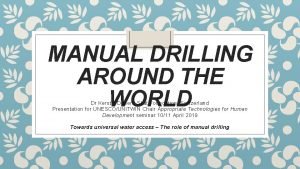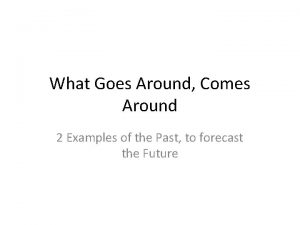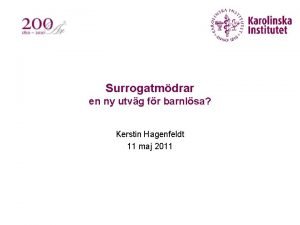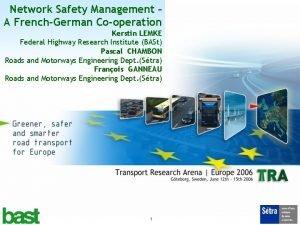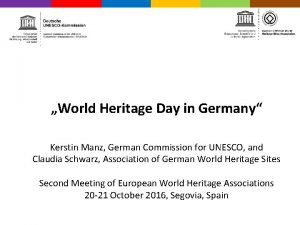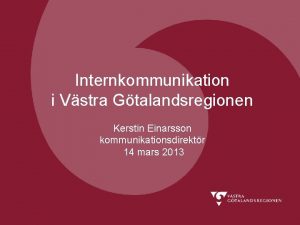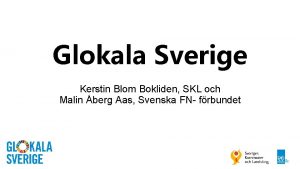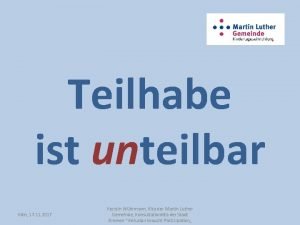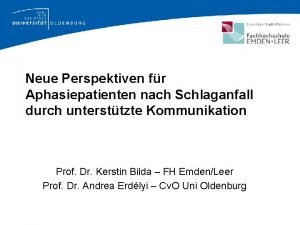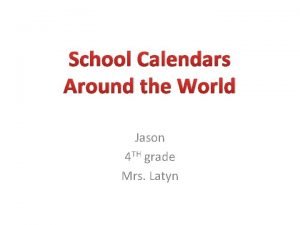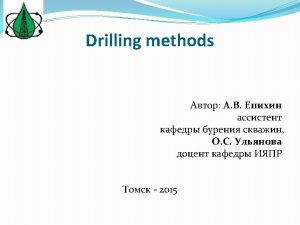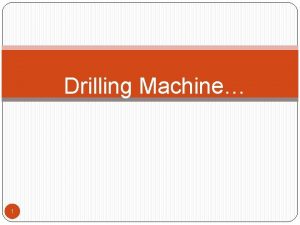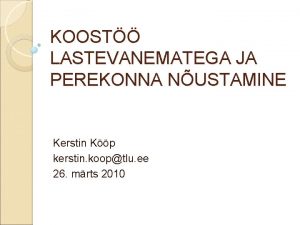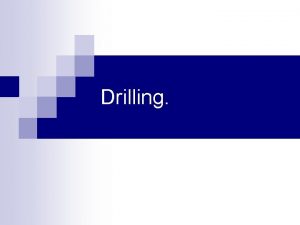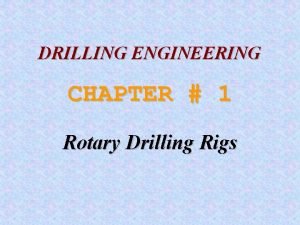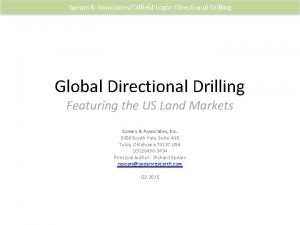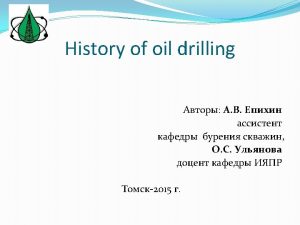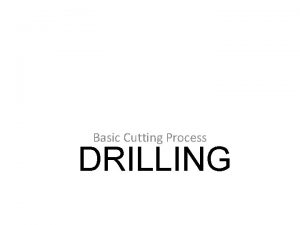MANUAL DRILLING AROUND THE WORLD Dr Kerstin Danert
















- Slides: 16

MANUAL DRILLING AROUND THE WORLD Dr Kerstin Danert, Skat Foundation, Switzerland Presentation for UNESCO/UNITWIN Chair Appropriate Technologies for Human Development seminar 10/11 April 2019 Towards universal water access – The role of manual drilling

Madrid Seminar Host Participants Brighid O Dochartaigh – British Geological Survey, UK Brighid O Dochartaigh – British Geological Survey (BGS), United Kingdom ◦ Host - UNESCO Chair „Appropriate Callist. Uganda Tindimugaya – Ministry of Water and Environment, Uganda Callist Tindimugaya – Ministry of Water and Environment (MWE), Cheikh Hamidou Kane – UNICEF Democratic Republic of Congo Technologies Human. DRC Development“, Cheikh Hamidou Kane –for UNICEF Dotun Adekile – independent, Nigeria Universidad Complutense Dotun Adekile – independent, Nigeria. Madrid Douglas Aburu – UNICEF Zambia Fabio Fusi – independent, Spain Jose Gesti Canuto – UNICEF (in future independent) Fabio Fusi – independent, Spain Kerstin Danert – Skat Foundation, Switzerland Jose Gesti Canuto – UNICEF (in future independent) Levy Museteka – Water Resources Management Authority, Zambia Kerstin Danert – Skat Foundation, Switzerland Moustapha Diene - Cheikh Anta Diop University, Senegal Levy Museteka – Water Resources Management Authority (WARMA), Zambia Universidad Complutense de Madrid, Spain Pedro Martinez-Santos, Moustapha Diene - Cheikh Anta Diop University, Senegal Pedro Martinez-Santos, Universidad Complutense de Madrid, Madrid

Topics ◦ Groundwater & potential use in Africa ◦ Manual drilling around the world ◦ Enforcing groundwater regulation: experiences from Uganda ◦ Development and uptake of manual drilling in Nigeria ◦ Regulating the manual drilling sector: experiences from Zambia ◦ Development and uptake of manual drilling in DRC ◦ The importance of groundwater data: experiences in DRC and Guinea Bissau ◦ Manual Drilling in Zambia ◦ Africa Groundwater Atlas ◦ The professional manual drilling sector in Senegal ◦ Towards universal access – The role of manual drilling ◦ Feasibility of manual drilling in Africa ◦ Manual drilling: opportunities and challenges ahead

Groundwater use for drinking water in Africa Estimates of access to drinking water sources in Sub. Saharan Africa. At least 50% of the total population in Africa use groundwater as their main source of drinking water Source: From 2015 JMP Country files in UPGro (2017) Source: RWSN (2015)

Manual drilling Hand Drilling Family Tree Key information ◦ relies on human energy to construct a borehole and complete a water supply ◦ can be used in fairly soft formations and if groundwater is relatively shallow ◦ equipment can easily be transported to remote, or difficult to access areas ◦ safer and quicker than hand dug wells ◦ provides local employment for small enterprises ◦ low cost (USD 20 – 3, 000) compared to mechanised/machine drilling (USD 2, 000 – 30, 000) ◦ can provide safe drinking water and water for agriculture/business ◦ affordable for some households & businesses directly ◦ supplies appreciated by users & some governments ◦ methods used in at least 36 countries around the world ◦ methods well established in some places, new in others and has not taken off in some locations Source: RWSN (2019) Source: Adapted from Danert (2009)

From Innovation to Widespread Use Three stages of innovation diffusion… …each with different challenges ◦ Invention or introduction – when a technology is developed and tested or introduced into a new context. At this stage, the uptake is quite low. ◦ Take-off (or tipping point) - when there is a sharp increase in the number of people adopting the technology, often copying others (may be localised or nation-wide). ◦ Established – when the technology is common, generally accepted and widely used. Source: Danert (2015)

Extent of Manual Drilling for Domestic Water Supplies Documented for 36 countries in 2015 Manual drilling is: Established Take-off or tipping point Introduced Used in the past Not analysed Source: Danert (2015) What has changed since 2015?

Used in the past… …and discontinued or now used on a limited basis Examples ◦ Chad ◦ extensive use in the 1980’s but loss of confidence by Government; reintroduced again later ◦ South Sudan ◦ some Vonder rigs still in limited use (e. g photo on right); new introduction ongoing ◦ Uganda ◦ considerable Vonder rig use in the early 1990’s then technology fell out of use ◦ research project in late 1990 s to develop new technology but it was not adopted ◦ new attempts to introduce manual drilling the north ◦ Hypothesis: these discontinuations may have been for NGO/Government-funded projects with limited private sector involvement, too short to enable technology to establish or too narrow in scope. Figure: Vonder Rig in use in Northern Bahr El Ghazal, South Sudan (2014)

Figure: Carrying Drilling Tools into the Ituri Rainforest, DRC Introduction phase ◦ Why? ◦ Reducing the cost of drinking water provision (rural) ◦ Reaching remote, and difficult to serve areas (rural) ◦ Private sector expertise spreads to new area and new market develops (urban? ) ◦ Who introduces? ◦ Private enterprises developing new markets ◦ Local NGOs with foreign, then local expertise (often with overseas funding) ◦ Government with foreign, then local expertise (recently many with UNICEF support) ◦ Foreign NGOs and companies (including several faithbased organisations) ◦ Funders over the last decade include UNICEF, Echo, Oxfam, AFDB, USAID, Connect International, Humana and Arrakis. Source: Matt Hangen, in Danert (2015) ◦ Issues ◦ Show potential (technology viability and mapping) ◦ Finding suitable locations ◦ Persuade others to try something new ◦ Finding early adopters ◦ Proving the technology ◦ Manufacture, procurement & assembly of equipment ◦ Strengthening business capacity of enterprises

Source: Sylvia Gaya in Danert (2015) Take-off (or valley-of-death) phase ◦ Examples ◦ ◦ Widespread in Njombe – take-off in Tanzania Association of low cost drillers in Chad Eastern Manual Drilling Cooperative in Zambia Spread within Nigeria ◦ Take-off scenarios ◦ Demand outstrips professional supply ◦ New unskilled drillers enter the market ◦ Construction quality concerns and risk of reputational damage ◦ Valley-of-death scenarios ◦ Trained drillers not able to obtain sufficient work ◦ Inadequate materials available ◦ Construction quality concerns and risk of reputational damage Figure (above): Sludging in Chad Figures (right): Localy fabricated drilling bits in Nigeria Source: Kerstin Danert

Widespread uptake Providing water for all? Example of manual drilling spread within Nigeria What happens? ◦ Drilling capacity increases ◦ Cost of drilling drops ◦ Awareness of opportunity within population increases ◦ Rural: not much has been documented other than Bangladesh, DRC in the pipeline ◦ Government and most international agencies largely ignore the phenomenon of private boreholes in urban areas despite their substantial contribution to drinking water supply Source: RWSN (2015) ◦ Urban: documentation for Nigeria and Chad….

From innovation to proliferation Primarily in urban areas & expected to grow Drivers ◦ Feasible hydrogeology ◦ Rapid urban expansion/urban spread ◦ Insufficient or unreliable municipal piped supplies ◦ Rising incomes and aspirations ◦ Supply – improved technology & more contractors Concerns ◦ Largely unmonitored and unregulated ◦ Water security risks due to increased abstraction ◦ Might Africa follow the Asian trends where half of groundwater sources are reported to be contaminated? Source: Healy (2018); Allan et al (2018)

The wider drilling context On-going initiatives ◦ Guidance materials ◦ Advocacy ◦ Assessments ◦ Training (face-to-face & online) => To improve practices and policy Inspiring others!! https: //www. rural-water-supply. net/en/sustainable-groundwatermanagement/professionnal-water-well-drilling

What is needed? Get manual drilling & private boreholes onto the radar of political leaders, policy-makers, major funders & media Types of Initiatives ◦ ◦ ◦ ◦ Advocacy Dialogue Documentation & sharing Monitoring (groundwater, abstraction & quality) Research & publications* Regulation (paper and practice) Surveys (of location) Training * There are lots of anecdotal reports! Who could play a role? ◦ ◦ ◦ Drillers & drillers associations National governments Media UNICEF World Bank & other bilateral agencies International Association of Hydrogeologists (IAH) ◦ UNESCO Chair/Madrid University ◦ Skat Foundation & RWSN ◦ Other research organisations

References ALLAN, S. ; BRISTOW, G. ; BUKAR, Y. ; CAPSTICK, S. ; DANERT, K. ; FUREY, S. ; GONI, I. ; HEALY, A. ; MACDONALD, A. ; THEIS, S. ; TIJANI, M. ; UPTON, K. ; WHITMARSH, L. (2018) Resilience in Groundwater Supply Systems: Integrating Resource Based Approaches With Agency, Behaviour and Choice (RIGSS), RIGGS Working Paper, Cardiff University, UK, available at https: //www. cardiff. ac. uk, (accessed 1 Apr 2019) DANERT, K (2009) Hand Drilling Directory, RWSN, available at https: //www. rural-water-supply. net/en/resources/details/156 (accessed 27 Mar 2019) DANERT K. (2015) Manual Drilling Compendium 2015. RWSN Publication 2015 -2 , Skat, available at https: //www. rural-watersupply. net/en/resources/details/653 (accessed 27 Mar 2019) HEALY, A (2018) Perceived trends in the development of individualised water supplies in Africa, Survey Summary , RIGSS , Cardiff University/RWSN, available at https: //www. rural-water-supply. net/en/resources/details/818 (accessed 1 Apr 2019) RWSN (2015) Documentation of Manual Drilling in Lagos and beyond [online], Rural Water Supply Network, https: //vimeo. com/107047730 (accessed 3 Apr 2019) RWSN (2019 a) Manual Drilling [online], https: //www. rural-watersupply. net/en/sustainable-groundwater-management/manual-drilling (accessed 27 Mar 2019 RWSN (2019 a) Professional Water Well Drilling [online] https: //www. rural-water-supply. net/en/sustainable-groundwatermanagement/professionnal-water-well-drilling UNICEF Toolkit for the Profesionalization of Manual Drilling in Africa, available at https: //www. unicef. org/wash/3942_59785. html (accessed 3 Apr 2019) UNICEF (2016) Professional Water Well Drilling. A UNICEF Guidance Note , Unicef , Skat Foundation, available at https: //www. rural-water -supply. net/en/resources/details/775 (accessed 3 Apr 2019) UPGro (2017) Groundwater and poverty in sub-Saharan Africa, UPGro Working Paper, Skat Foundation, St. Gallen, June 2017, Available at https: //upgro. org/publications-papers/project-reports/ (accessed 3 Apr 2019)

Thank you! Dr Kerstin Danert Skat Foundation Switzerland kerstin. danert@skat. ch 16
 Kerstin danert
Kerstin danert Example of what goes around comes around
Example of what goes around comes around Martin luther king of hinduism
Martin luther king of hinduism Kerstin hagenfeldt
Kerstin hagenfeldt Kerstin lemke bast
Kerstin lemke bast Kerstin manz
Kerstin manz Horde mail ph weingarten
Horde mail ph weingarten Nele eley
Nele eley Kerstin einarsson
Kerstin einarsson Kerstin blom bokliden
Kerstin blom bokliden Kerstin wührmann bremen
Kerstin wührmann bremen Aphasie
Aphasie Prof. dr. kerstin schneider
Prof. dr. kerstin schneider Thomas witschel
Thomas witschel Kerstin lindblad-toh
Kerstin lindblad-toh Weird restaurants around the world
Weird restaurants around the world School calendars around the world
School calendars around the world
